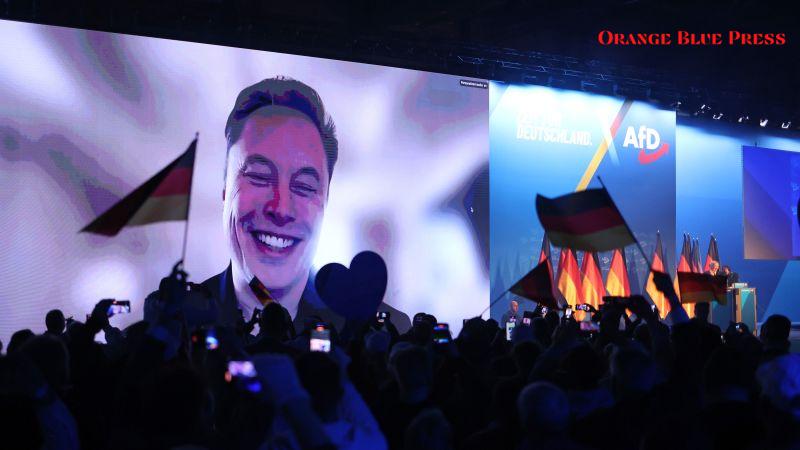Recently, a major political event in Germany saw tech billionaire Elon Musk making headlines as he addressed supporters of the far-right Alternative for Germany (AfD) party. This is quite significant because while Musk claimed to support their message, a massive wave of protests erupted across the country against the party, which many view as promoting extremist views.
Protests Erupt Across Germany
Tens of thousands of people took to the streets in various cities, including Berlin and Cologne, to express their opposition to the AfD’s campaign and its alignment with controversial ideas. Demonstrators carried signs and sang songs that highlighted their discontent with far-right extremism. Notably, around 35,000 people gathered at the iconic Brandenburg Gate in Berlin, making their voices heard against the party’s ideology.
Elon Musk’s Controversial Speech
At the campaign launch held in Halle, Germany, on January 25, 2025, Musk spoke via live video to about 4,500 AfD supporters. During his speech, he referred to the AfD as Germany’s “best hope” in the upcoming elections scheduled for February 23. He stressed themes of national pride and conversed with AfD’s chancellor candidate, Alice Weidel, who echoed sentiments against multiculturalism.
Context of the Campaign Launch
The AfD party, which is currently polling second in election surveys, was inspired to launch its campaign amid a backdrop of controversial events, including a tragic knife attack in Aschaffenburg, which claimed two lives. This incident amplified discussions around migration and security policies, areas where the AfD hopes to sway public opinion in their favor.
Responses to Musk’s Support
Musk’s address and support for the AfD have drawn sharp criticism from numerous European leaders. The UK Prime Minister accused Musk of spreading misinformation, while the German government raised concerns over potential election interference. Musk’s high-profile backing of the party has put him at the center of discussions on the influence of wealthy individuals in politics, especially in an emotionally charged environment like Germany’s current political climate.
The AfD’s Position in German Politics
As elections loom, the AfD’s platform seems to resonate with a segment of the German populace, as they push for more stringent immigration policies and quicker deportations. They are polling at around 20%, which positions them favorably behind the current leading CDU/CSU alliance. However, their rise in popularity comes with serious implications, as Germany’s domestic intelligence agency considers the AfD a suspected far-right extremist organization.
What Lies Ahead
With the election approaching rapidly, the atmosphere is charged. The upcoming vote is considered crucial, not just for Germany but for Europe as a whole. As various groups rally for their causes, the influence of megastars like Elon Musk, who have a significant public platform, will be under intense scrutiny as debates over democracy, extremism, and public opinion unfold.
Protest Participation and Atmosphere
| City | Number of Protesters |
|---|---|
| Berlin | 35,000 |
| Cologne | 40,000 |
The protests displayed a clear message: as the debates heat up, the German public remains deeply engaged. Youth and older citizens alike voice their concern, advocating for a society that embraces diversity over division.




















